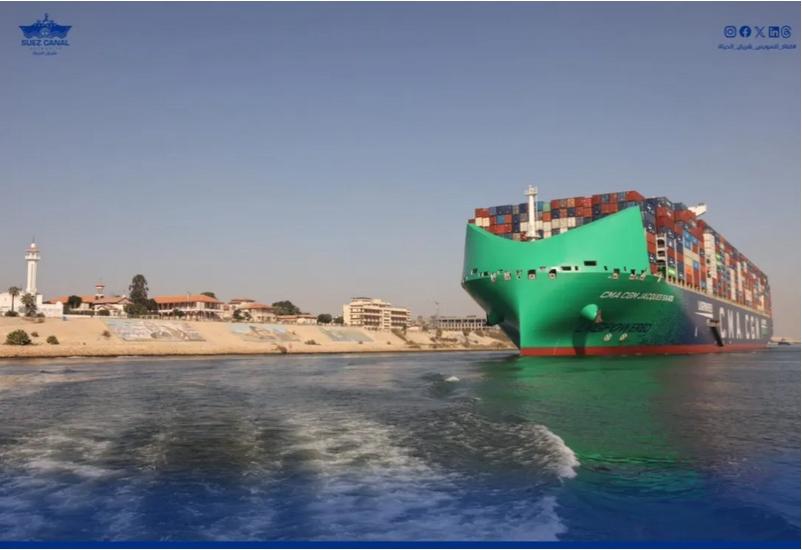《装卸时间与滞期费》第6版
CHAPTER 3 第3章
Commencement of laytime 装卸时间的起算
Charterer’s duty to act to enable a vessel to become an Arrived ship 承租人使船舶成为抵达船的义务
3.385在The World Navigator案中,也对The Atlantic Sunbeam进行了讨论。该案涉及到是fob玉米买卖合同。据合同条文,尽管准备就绪通知书早先已经递交,但,只有在船舶抵达泊位时才能起算装卸时间。为了使船舶被允许靠泊,卖家的文件必须准备妥当。所以,在该案,缺少文件并没有影响通知书递交,而是影响装卸时间开始起算。然而,在这2个案例中,似乎都被接受适用同样的原则(合理尽责)。(该案中,虽然卖家因文件耽误船舶靠港,但却加快装货速度在买卖合同规定的时间内把货物装完。船东根据租船合同向买方索赔滞期费,买方希望向卖家追讨,最后上诉法院判买方索赔实际损失失败。)
3.386 What term should be implied in these circumstances was considered by Staughton LJ in the Court of Appeal where he said:
It seems a fair inference from the award that the ship nominated by the buyers could not proceed to a berth until some documentation required by the sellers was in order. In those circumstances there was to my mind plainly an implied obligation of some kind upon the sellers. The general nature of such an obligation was described by Lord Blackburn in Mackay v. Dick (1881) 6 App Cas 251 at p. 263:
‘‘I think I may safely say, as a general rule, that where in a written contract it appears that both parties have agreed that something shall be done, which cannot effectively be done unless both concur in doing it, the construction of the contract is that each agrees to do all that is necessary to be done on his part for the carrying out of that thing, though there may be no express words to that effect.’’
That seems to me to be exactly applicable to this case. The buyers cannot arrange for their ship to be available for loading until the sellers’ documentation is in order. It is therefore implied that the sellers will do all that is necessary to secure that it is in order.
As to the time for performance of the obligation, I can see no difficulty. By the Centro terms the buyers were to give at least 15 days’ pre-advice of the vessel’s readiness to load. That was evidentally considered a reasonable time for the sellers to make the necessary arrangements. Having received such a notice, they were obliged to do so within such time as would enable the vessel to be ready to load after fifteen days.
What does give rise to difficulty is the question whether the implied obligation is to use reasonable diligence (or best endeavours), or is absolute. There is ostensibly some conflict here between the decision of the House of Lords in Sociedad Financiera de Bienes Raices v. Agrimpex (The Aello) [1960] 1 Lloyd’s Rep 623... and that of Mr Justice Kerr in Sunbeam Shipping Co Ltd v. President of India (The Atlantic Sunbeam) [1973] 1 Lloyd’s Rep 482. In the first case it was held in terms by the majority, that the obligation was absolute. But in the second Mr Justice Kerr held (at p. 488) that— ‘‘The term to be implied in this case is to the effect that the charterers were bound to act with reasonable despatch and in accordance with the ordinary practice of the Port of Calcutta in doing those acts which had to be done by them as consignees to enable the ship to become an arrived ship.’’
It may well be that the cases can be reconciled if one has regard to the precise task which remained unperformed in each. In The Aello the charterers had not obtained a giro permit, because they did not have cargo available ready to be loaded. That was held to be solely their concern and they must bear the responsibility for lack of a cargo, even though their best endeavours had failed to find one. In The Atlantic Sunbeam, on the other hand, the obstacle was delay in obtaining a jetty challan, which required the co-operation not only of the consignees or receivers but also of the port authority and the customs. It was at least possible that the port authority or the customs had caused the delay.
Having explored the problem thus far, I agree with Lord Justice Parker that it need not be decided in this case, having regard to our conclusion as to damages if there was any breach of an implied term.
The precise nature of the implied term thus awaits further judicial consideration.
3.386在上诉法院,Staughton大法官探讨了在这些情况下能够默示什么样的责任条文的问题,他说:
这似乎从仲裁判决书中可以合理推断出,只有卖家备妥所需要的相关文件,买方所指定的船舶才能驶入泊位靠泊。在这种情况下,我认为这明显是卖家的默示义务。在Mackay v. Dick案中,Blackburn勋爵曾经对这种义务的一般性质做了描述,如下:
我想,这作为一般性规则,我可以有把握地说,似乎当事双方已经在书面合同中一致同意那些事情应当去做,除非双方在做这件事达成一致,那些事情实际上是不能去做。对此,合同的解释是,为了进行那些事情,每一方同意去做的对他来一方说都是必须要做的,尽管在合同中对这种作用效果还没有明文规定。
这在我看来是完全适用于本案这种情况。除非卖家的文件备妥,否则买方不能安排船舶靠泊装货。因此,卖家有默示的义务去采取一切必要的措施以确保进港文件办妥。
至于履行其职责/义务的时间,我认为也不难判断。按照标准谷物租船合同条文,买方至少提前15天给予船舶做好装货准备就绪的预先通知。这可以作为卖家进行必要的安排时所考虑的合理时间的佐证。在收到这一通知之后的15天时间,他们有义务在这时间内去备妥文件,以便能够使船舶做好准备去装货。
所产生的困难问题是:这一默示义务是合理尽责的(或尽最大努力),还是绝对的?在上议院审理的Sociedad Financiera de Bienes Raices v. Agrimpex (The Aello)案和Kerr法官审理的Sunbeam Shipping Co Ltd v. President of India(The Atlantic Sunbeam)案,表面上这2个案例的判决好像有点冲突。在前一个案例,上议院大多数法官明确判决这一义务是绝对的。但在第2个案例,Kerr法官(在劳氏法律报告第488页)判决是:
‘在该案,针对这一效果的默示条文是:承租人有义务合理速遣迅速行动起来,并根据Calcutta港口通常做法采取这些行动完成他们作为收货人所必须要做的工作,以使船舶成为抵达船。’
如果已经考虑到这是留给他们每一当事方所未履行的精确的任务,这些案例就可以很好地协调而不发生冲突。在The Aello案,因为承租人还没有准备好要装船的货物,导致其不能获得giro进港许可证。判决:这完全是与他们有关,所以他们必须承担缺少货物的责任,即使是他们尽最大努力未能找到解决办法。在The Atlantic Sunbeam案,在另一方面,是延误获得码头许可导致的障碍,这不仅要求收货人或接受人的协作而且还要港口当局和海关的配合。这至少可能是港口当局或是海关导致的延迟。
经过对这些问题的研究探讨,目前为止,我比较同意Parker大法官的观点:如果在该案有任何违反默示条文的话,考虑到我们对损失赔偿的最终结论,这不必对此(责任的程度)做出判定。
因此,(责任)默示条文的精确性还有待进一步的司法审议。

《装卸时间与滞期费》购买链接(点击可购买)
海运圈聚焦专栏作者 魏长庚船长(微信号CaptWei)

 2019-04-18
2019-04-18 636
636 














